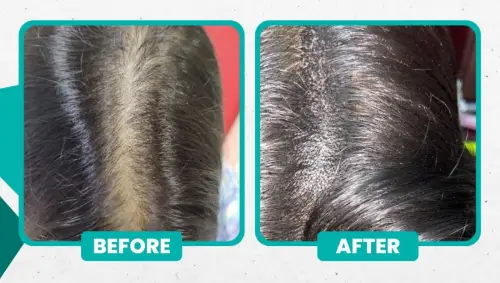
Hair loss is a common concern affecting millions of people worldwide. With advances in medical and cosmetic technology, there are now numerous treatments available to combat hair loss and promote regrowth. Choosing the best treatment can be challenging, but we have compiled a comprehensive guide to help you make an informed decision.
Understanding Hair Loss
Causes of Hair Loss
Hair loss can result from a variety of factors, including:
- Genetics: Androgenetic alopecia (male or female pattern baldness) is the most common cause.
- Hormonal Changes: Pregnancy, childbirth, menopause, and thyroid problems can contribute to hair loss.
- Medical Conditions: Conditions such as alopecia areata, scalp infections, and lupus.
- Medications: Drugs used for cancer, arthritis, depression, heart problems, and high blood pressure.
- Nutritional Deficiencies: Lack of essential nutrients like iron, protein, and vitamins.
- Stress and Lifestyle Factors: Physical or emotional stress can trigger hair loss.
Top Treatments for Hair Loss and Regrowth
1. Minoxidil (Rogaine)
How It Works:
Minoxidil is an over-the-counter topical treatment that promotes hair regrowth. It is applied directly to the scalp and works by stimulating hair follicles.
Effectiveness:
Minoxidil has been proven to be effective for both men and women. It can take several months to see results, and continuous use is necessary to maintain hair growth.
Side Effects:
Possible side effects include scalp irritation, dryness, and unwanted facial hair growth.
2. Finasteride (Propecia)
How It Works:
Finasteride is an oral prescription medication for men. It works by reducing the levels of dihydrotestosterone (DHT), a hormone that shrinks hair follicles and leads to hair loss.
Effectiveness:
Studies show that Finasteride can significantly slow hair loss and promote regrowth in men.
Side Effects:
Potential side effects include sexual dysfunction, depression, and breast tenderness.
3. Platelet-Rich Plasma (PRP) Therapy
How It Works:
PRP therapy involves drawing a small amount of the patient’s blood, processing it to concentrate the platelets, and injecting it into the scalp. Platelets contain growth factors that stimulate hair follicles.
Effectiveness:
PRP therapy has shown promising results in promoting hair growth and increasing hair density.
Side Effects:
Possible side effects include mild pain, redness, and swelling at the injection sites.
4. Hair Transplant Surgery
How It Works:
Hair transplant surgery involves removing hair follicles from a donor area (usually the back of the head) and transplanting them to thinning or bald areas.
Effectiveness:
Hair transplant surgery is considered the most permanent and effective solution for hair loss. It provides natural-looking results and is suitable for both men and women.
Side Effects:
Potential side effects include infection, scarring, and temporary swelling.
5. Laser Therapy
How It Works:
Low-level laser therapy (LLLT) uses red light to stimulate hair follicles and promote hair growth. It is available in various forms, including handheld devices and helmets.
Effectiveness:
Studies have shown that laser therapy can improve hair density and thickness.
Side Effects:
Laser therapy is generally considered safe with minimal side effects, such as mild scalp irritation.
6. Natural Remedies and Supplements
Popular Options:
- Biotin: A vitamin that supports hair health.
- Saw Palmetto: A natural DHT blocker.
- Essential Oils: Such as rosemary and peppermint oil, which stimulate hair growth.
Effectiveness:
While the effectiveness of natural remedies varies, some individuals report positive results. Supplements should be taken under medical supervision to avoid potential interactions with other medications.
Side Effects:
Natural remedies and supplements are generally safe but can cause allergic reactions or interact with other medications.
Lifestyle Changes for Hair Health
1. Balanced Diet
Nutrient-Rich Foods:
- Protein: Essential for hair growth; include eggs, fish, and lean meats.
- Iron: Prevents hair loss; found in spinach, lentils, and red meat.
- Vitamins: Vitamin A, C, D, and E support hair health.
2. Stress Management
Effective Techniques:
- Exercise: Regular physical activity reduces stress and promotes overall health.
- Meditation: Mindfulness and relaxation techniques can help manage stress.
- Adequate Sleep: Ensuring 7-8 hours of sleep per night supports hair health.
3. Hair Care Practices
Best Practices:
- Gentle Handling: Avoid excessive brushing and harsh treatments.
- Proper Washing: Use mild shampoos and conditioners suitable for your hair type.
- Protection: Protect hair from environmental damage by wearing hats and using UV protectants.
Conclusion
Finding the best treatment for hair loss and regrowth involves understanding the underlying cause and choosing a treatment that suits your needs. From FDA-approved medications like Minoxidil and Finasteride to advanced options like PRP therapy and hair transplant surgery, there are numerous solutions available. Additionally, adopting a healthy lifestyle and proper hair care practices can significantly improve hair health.
Note: Traya, Adon Hair, Man Matters, ThriveCo Etc.






